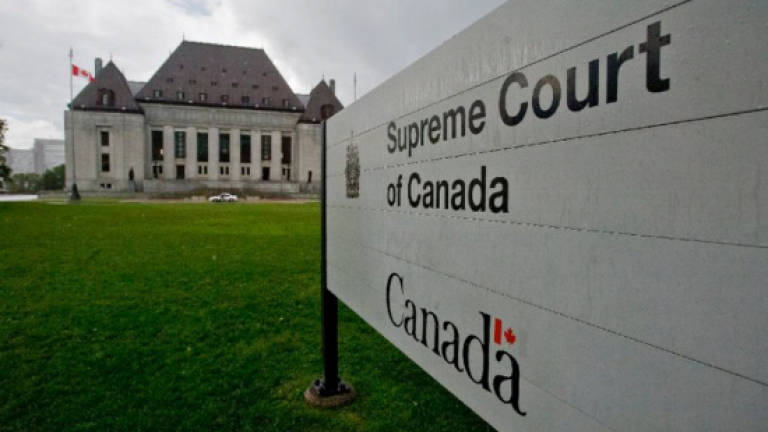Canada top court rejects indigenous spiritual rights in resort case

OTTAWA: Canada's top court Thursday ruled against an indigenous tribe seeking to block a ski resort development on what it says is sacred ground in a first test of native spiritual rights.
The Supreme Court held that the government has a duty to protect people's right to hold and manifest religious beliefs, but not to protect sacred sites in a landmark 7-2 split decision.
The case, which attracted interveners including Christian and Muslim groups, originated with Glacier Resorts' 1991 bid to build a ski resort in British Columbia's upper Jumbo Valley.
The mountain and its glaciers had long been a popular destination for heli-skiing.
A long regulatory process that included consultations with the local Ktunaxa First Nation ended with the government of British Columbia approving the project in 2012.
The Ktunaxa, however, went to court to try to block its construction, claiming the ski resort would drive the Grizzly Bear Spirit, which is central to their religious beliefs, from the mountain, which they call Qat'muk.
They argued that the approvals amounted to a breach of their right to freedom of religion.
The Ktunaxa said if the spirit were driven away they "would no longer receive (its) spiritual guidance and assistance."
Their religious beliefs in the spirit, according to the claim, would become "entirely devoid of religious significance, and accordingly, their prayers, ceremonies, and rituals associated with Grizzly Bear Spirit would become nothing more than empty words and hollow gestures."
Moreover, without their spiritual connection to Qat'muk and to the spirit, the Ktunaxa would be unable to pass on their beliefs and practices to future generations, they argued.
The court accepted the tribe's belief in the Grizzly Bear Spirit and its view that "development will drive it from that place."
But it concluded that the state's duty "is not to protect the object of beliefs or the spiritual focal point of worship, such as Grizzly Bear Spirit."
Rather, its duty is "to protect everyone's freedom to hold such beliefs and to manifest them in worship and practice or by teaching and dissemination," Chief Justice Beverley McLachlin wrote on behalf of the majority.
Two dissenting justices agreed with the ruling, but took a broader view of religious protections, noting "an inextricable link between spirituality and land in indigenous religious traditions."
"In this context, state action that impacts land can sever the spiritual connection to the divine," Justice Michael Moldaver said.
Glacier Resorts said the resort is expected to draw 2,000 to 3,000 visitors a day in high season. — AFP